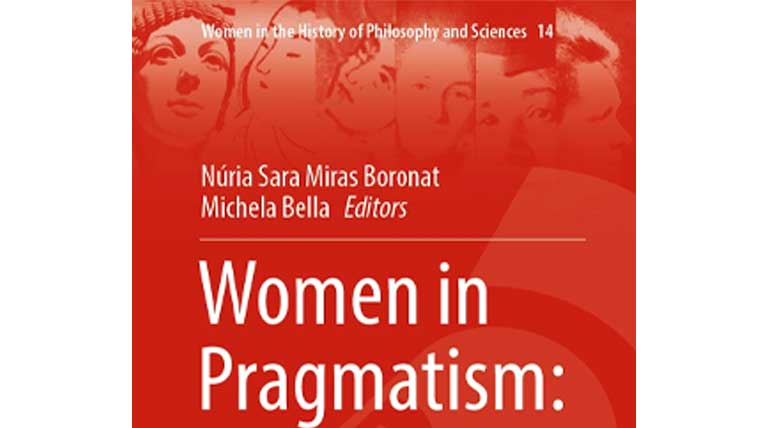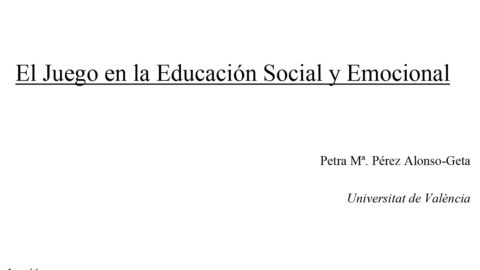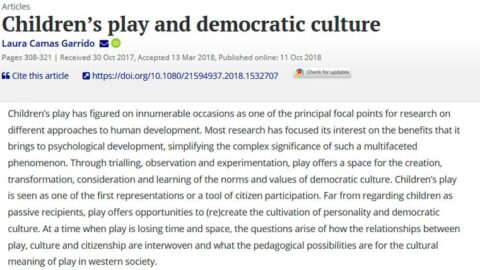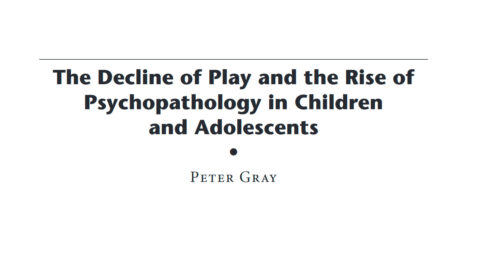Autora: Laura Camas Garrido.
In response to several industrial transformations that took place at the end of the nineteenth century, the Playground Movement focused its efforts on claiming the construction of recreational public spaces in modern American cities of the late nineteenth century. The pragmatist philosopher Jane Addams actively participated in that movement and devoted a lot of her intellectual works (evidenced in articles, conferences, interviews, and books) to claiming the need for creating protected playgrounds. Being the founder and the head of the settlement Hull-House (1889–1935), Addams enabled the first public playground of the city of Chicago in 1894. This paper aims to explore Jane Addams’s notion on children’s play and democracy in her works published before War World I. From Addams’s perspective, the lifestyles of the industrial context had led young people to a state of aesthetic insensitivity, a “dangerous experiment” that had jeopardized the dreams and democratic aspirations of children and young people, thereby compromising the preservation of society. Addams argued the necessity of creating safe spaces that allow the aesthetic sensitivity of children and young people as a means for cultivating civic virtues valuable for democracy.












